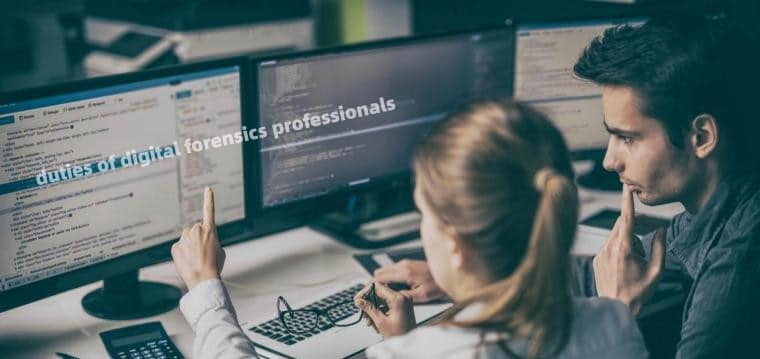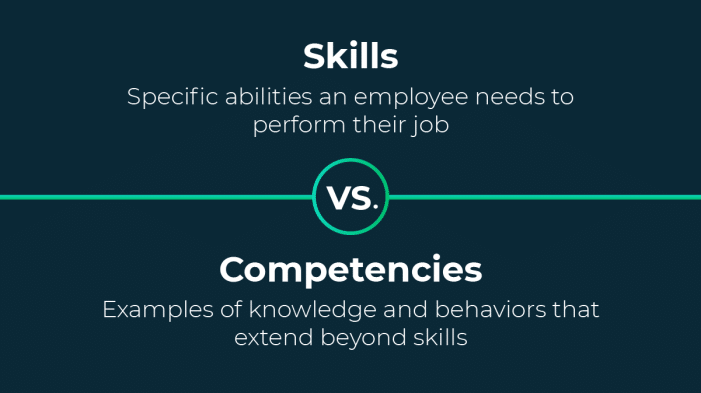Exploring Careers in Digital Forensics Jobs

-
Content
- Introduction
- Overview of Digital Forensics Jobs
- Duties of Digital Forensics Professionals
- Roles in Digital Forensics Jobs
- Skills and Competencies Required
- Training and Education Paths
- Conclusion
-
Content
- Introduction
- Overview of Digital Forensics Jobs
- Duties of Digital Forensics Professionals
- Roles in Digital Forensics Jobs
- Skills and Competencies Required
- Training and Education Paths
- Conclusion
Introduction
One important area of cyber security is digital forensics, which is the recovery and analysis of data from digital devices, sometimes with an eye towards computer crime. By examining harmful assaults and data breaches, this field is essential to not only the investigation of criminal activity but also to the prevention of future cyber threats.
Understanding the tasks and functions in digital forensics jobs is critical for people joining the sector as well as organisations wanting to strengthen their cyber security. These positions range from forensic investigators, who collect and analyse evidence from digital sources, to forensic cyber security professionals, who execute defensive methods based on forensic results. The accuracy and thoroughness with which these obligations are carried out determines the efficacy of a digital forensic inquiry.
The complexity of crimes is increasing in tandem with the evolution of the digital realm. Experts in digital forensics must, therefore, be detail-oriented and dedicated to lifelong learning in order to succeed in their field. With this primer under our belts, we can dive into the ins and outs of digital forensics careers, raising the bar for cyber security practice across industries and guaranteeing legal compliance.
Overview of Digital Forensics Jobs
1. Exploring the Spectrum of Roles
The field of digital forensics offers a variety of roles that cater to specific aspects of cyber security and criminal investigation. Roles such as forensic science jobs involve rigorous scientific methods to analyze data from digital devices. Similarly, forensics investigation jobs focus on the application of forensic principles to uncover facts in cyber incidents. These roles range from forensics Investigators who extract and analyze data from digital sources, to Digital Forensic Analysts who delve deeper into extracting and interpreting complex data patterns.
2.Significance of Specialized Skills
Specialized skills are paramount in digital forensics due to the technical complexity and legal sensitivity of the work. Proficiency in digital forensic tools and knowledge of data acquisition techniques are fundamental, enabling professionals to handle and analyze data accurately without compromising its integrity. Protecting sensitive information and reducing additional threats both during and after an investigation requires expertise in forensic cyber security.
These skills not only enhance the efficacy of investigations but also ensure adherence to legal standards, which is critical in converting digital findings into admissible evidence. As cyber threats evolve, the demand for skilled professionals in digital forensics jobs continues to rise, highlighting the importance of specialized training and continuous professional development in this dynamic field.
Duties of Digital Forensics Professionals
1. Evidence Collection and Analysis
The cornerstone of a digital forensics job is the ability to efficiently collect and analyze digital evidence. This process involves meticulous scrutiny of digital data ranging from simple emails to complex databases stored on myriad devices. Maintaining the integrity of the evidence chain is part of the training for professionals who use digital forensic technologies and are necessary for legal examination. For digital artefacts to be recovered undisturbed and retained as reliable evidence in court proceedings, they use cutting-edge data gathering methods.
2. Cyber Incident Investigation
Investigating cyber incidents and crimes forms a substantial part of the duties in digital forensics jobs. Forensics investigators delve into the digital traces left by cyber criminals to not only understand the ‘how’ and ‘the ‘what’ but also to gather insights into the ‘why’. This involves a detailed examination of log files, including log forensics, internet histories, and email exchanges. The goal is to piece together a narrative that can explain the breach and help predict or prevent future vulnerabilities.
3. Legal Compliance and Standards Adherence
Forensic digital forensics experts must guarantee legal compliance and conformity to norms. They need to be aware of the most recent rules and regulations that pertain to digital data, as well as international norms for dealing with cyber crimes that transcend national borders. The forensic toolkit employed must meet stringent requirements to ensure that findings are recognized in legal proceedings. Digital forensics jobs require a firm understanding of legal frameworks to navigate the complexities of law and technology adeptly, making the role not just technical but also significantly legalistic.
Roles in Digital Forensics Jobs
1. Digital Forensics Analyst: Core Responsibilities and Essential Skills
The first steps of any digital inquiry are often the purview of a digital forensics analyst. As part of this work, you’ll be responsible for recovering and analyzing data from a wide range of digital devices using digital forensic technologies. To adapt to the varied technologies encountered in the field, the analyst must be knowledgeable in both software and hardware. Among your primary duties will be the preparation of comprehensive reports outlining the steps used to gather and analyse evidence, which will be required for use in court cases and internal audits. A strong grasp of programming, operating systems, and file systems is essential for this position, as are the ability to analyse critically and solve problems.
2. Cyber Defense Forensics Analyst: A Specialized Tactical Position
The role of a Cyber Defense Forensics Analyst intersects cybersecurity and forensic disciplines, focusing on understanding and mitigating threats before they breach systems. This position demands a proactive approach to security, using predictive analytics to ward off potential cyberattacks. Responsibilities include monitoring systems for suspicious activities, conducting post-breach analyses, and developing strategies for incident response and recovery. A strong eye for digital evidence and a thorough understanding of network architecture are required for this position. The analyst must also be proficient in forensic cyber security, with current understanding of developing threats and defence methods.
3. Forensic Computer Analyst: Detailed Job Profile and Duties
A forensic computer analyst digs deeper into the technical aspects of digital forensics. This specialist is tasked with not only the collection and analysis of data but also with reconstructing scenarios to understand the cybercrime’s context. Data extraction from compromised or encrypted devices using dfir tools is part of the job description this task calls for a strong technical background in malware analysis and cryptography. The ability to record results thoroughly and in accordance with legal requirements is also essential for this position. These analysts must be able to articulate complicated technical data to stakeholders that lack technical knowledge, hence strong communication skills are essential.
Skills and Competencies Required
1. Mastery of Technical Skills
Proficiency in technical skills is indispensable in digital forensics jobs. Professionals in this field must be adept with a variety of digital forensic tools and techniques that allow for the efficient and accurate extraction and preservation of digital evidence. This means being familiar with digital forensic labs and the tools and software used there, like forensic toolkits and dfir tools. It’s also important to know how file systems work, how to secure data, and how to get data back from devices that have been physically hurt. These technical skills make sure that the proof that is gathered stays true and can be used in court.
2. Analytical Skills for Evidence Interpretation
People working in fields where analysing complicated digital data is required must possess strong analytical abilities. In addition to making sense of the data, you’ll need to figure out how to link together seemingly unrelated bits of information to tell a story. Expertise in conducting in-depth studies, such as reviewing digital evidence and log forensics data, is essential for digital forensics experts in their pursuit of patterns that may reveal the methodology and drivers behind cyber events. Their exceptional analytical skills allow them to extract valuable insights from massive datasets, even when such datasets include a lot of contradictory or confusing information.
3. Effective Communication Skills
One of the most important abilities for any expert working in digital forensics jobs is communication. Whether giving an oral presentation or writing a report, the capacity to communicate complicated ideas succinctly and effectively is crucial. To make sure that everyone is aware of the results and its ramifications, forensic investigators must work well with a variety of stakeholders, such as corporate management, legal teams, and law enforcement officers. Forensic cases must be successfully resolved, which requires not only thorough reporting but also tailoring the information distribution to various audiences.
Training and Education Paths
1. Academic Foundations in Digital Forensics and Cybersecurity
A formal degree programme is usually the first step towards a career in computer forensics. Degree programmes in computer science, cybersecurity, or criminal justice provide the groundwork for careers in digital forensics and should be considered by aspiring professionals. Particularly helpful are specialised programmes that teach students the theory and practice of information security and digital investigations. Acquiring these degrees not only gives people a leg up in this competitive industry, but it also boosts their reputation and chances of getting a job.
2. Certification: A Credentialing Boost
Having a certification in digital forensics shows that you are dedicated to your career and have mastered the subject. A few well-known and respected credentials in this field include the Certified Cyber Forensics Professional (CCFP), Certified Digital Forensics Examiner (CDFE), and Certified Information Systems Security Professional (CISSP). A certification in forensic cyber security, digital evidence management, or data gathering, for example, may set you apart from the competition, increase your salary potential, and open doors to greater work opportunities.
3. Commitment to Continuous Learning
Those working in digital forensics must be committed to lifelong learning since the nature of digital threats is always changing. Workshops, seminars, and online courses covering advanced forensic procedures and developing technology should be part of professionals’ continuous learning activities. This guarantees that their procedures are up-to-date and in line with legal requirements, as well as keeping them informed of emerging trends and technologies like digital forensic and dfir tools.
Conclusion
In this digital age, where online dangers are getting smarter and more common, digital forensics jobs are both broad and important. This field needs a lot of different jobs, and each one has its own set of duties. These can be anything from gathering and analyzing digital proof to protecting against online risks before they happen. The responsibilities that come with these positions are very important for keeping the law fair and keeping private data safe.
Expertise in the use of advanced digital forensic tools, strong analytical skills for understanding complicated data, and strong communication abilities for reporting and collaborating on results are all necessary for professionals seeking a career in digital forensics. Achieving academic success, earning credentials that matter in the field, and dedicating oneself to ongoing learning are all steps towards becoming an expert digital forensics specialist.
Professionals in digital forensics need to adapt their skills to match the changing digital scene. They can guarantee that their knowledge stays current and that they continue to make priceless contributions to the fields of cybersecurity and law enforcement by keeping up with the most recent advancements and adjusting to new technology and procedures.



